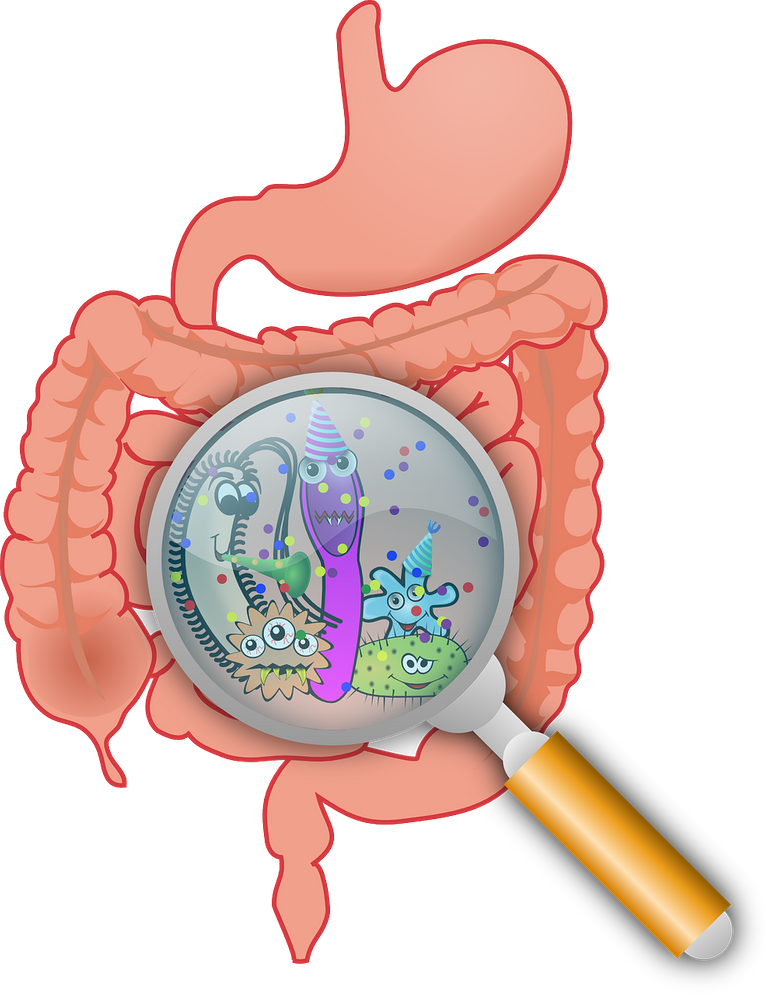Beyond Cells: The Role of Bacteria in Shaping Human Physiology
As human, we are undoubtedly made up of about 37 trillion cells that form every part of my body, you name it but then while these cells are a big part of our makeup, our bodies are still able to host bacteria. When I mean hosting bacteria, I do not mean just a few, because we host trillions of bacteria cells in our body. Maybe you have heard the phrase "you are more bacterial than human" and that should tell you that compared to the amount of cells you have, you have more bacteria in your body. They are everywhere you can imagine, in your home, on your hands before and after you wash them, and everywhere you can think of.
Before we are born, we are sterile, but when we pass through the birth canal, we inherit our mothers microbes, and when we feed infants, milk from the mothers contain certain sugars that are meant to feed certain microbes in our guts, while growing our immune system. Every human is made up of their microbial floral which includes virus, fungi, bacteria and other organisms.
These bacteria are so much and are referred to as Biome; that word microbiome is gotten from it, and microbiomes are bacteria that have become a part of our lives, living in our guts (gut microbiome), skin, mouth, and everywhere else you can think off in the body. So you know, bacteria have their own DNA, but then they are prokaryotes along with archea, and they do not have a defined nucleus like plants or animals. Bacteria have their chromosomes in the nucleoid, an area inside their cell that looks like a nucleus but it lacks the structural packaging of a nucleus.
Bacteria have a collection of smaller circle DNA which is referred to as plasmids which duplicates separately from the main chromosome. The genes carried in the plasmid can make bacteria resistant to antibiotics, and they are transferable from one bacteria to another, and can collect other plasmid from the environment, in a process known as horizontal gene transfer. A fictional example of horizontal plasmid transfer is the spiderman bite that got him the genes to have that super power. Although that's not science, it explains how the genes from bacteria can be transferred to other bacteria in their environment.

needpix.com
While eukaryotes use the DNA of two organisms to reproduce, bacteria just clone themselves but because of horizontal gene transfer, they can become very resilient to their environment but then this same plasmid has helped humans in the production of drugs such as insulin which helps to regulate sugar to get into the cell and not stay in the blood. We cannot overlook the impact of bacteria gene cloning in cancer drugs and human growth hormones which are used to treat diseases such as HIV.
In our body, some bacteria are not harmful as they just do their things being that we provide them with shelter, and they in return help us fight against invasive microbes. Another set are harmful bacteria that want to take over the place where they are for instance the bacteria Streptococcus mutans that releases acids on our teeth to cause them to decay.
Evidence has shown that our gut microbiomes are able to interact with our brains, for instance, Serotonin which is controlled by the brain has 90% of its production by gut bacteria. With Gut science, it has shown that our microbiome influences us a lot with research showing that there is a possibility for microbes to influence our brain into getting the food they need, thereby influencing our cravings.
Our bodies serve as complex ecosystems where bacteria play pivotal roles in both health and disease. Understanding the intricate dynamics of these microbial communities opens avenues for innovative medical interventions and sheds light on the profound interconnections between our microbiomes and overall well-being.
To Read More
- https://www.sciencedirect.com/science/article/pii/S1568163721003032
- https://www.ncbi.nlm.nih.gov/pmc/articles/PMC6469458/
- https://www.smilesbyshields.com/the-real-cause-of-tooth-decay-acid/
- https://www.sciencedaily.com/releases/2021/03/210318142451.htm
- https://www.ncbi.nlm.nih.gov/pmc/articles/PMC4991899/
- https://microbiologysociety.org/why-microbiology-matters/what-is-microbiology/bacteria.html
- https://www.genome.gov/genetics-glossary/Bacteria
- https://www.ncbi.nlm.nih.gov/books/NBK7908/
- https://www.sciencedirect.com/topics/medicine-and-dentistry/bacterial-chromosome
- https://www.genome.gov/genetics-glossary/Plasmid
- https://www.ncbi.nlm.nih.gov/pmc/articles/PMC9912019/
- https://www.ncbi.nlm.nih.gov/pmc/articles/PMC3854212/
- https://www.ncbi.nlm.nih.gov/pmc/articles/PMC9377996/

Thanks for your contribution to the STEMsocial community. Feel free to join us on discord to get to know the rest of us!
Please consider delegating to the @stemsocial account (85% of the curation rewards are returned).
Thanks for including @stemsocial as a beneficiary, which gives you stronger support.